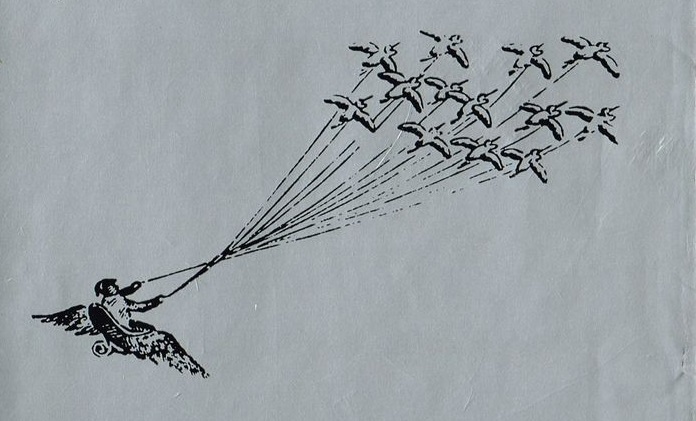
She walked across the street, and looking for nothing in the window of a shop opposite she saw, through the glass, that he had come to the door of his own shop and was watching her. He had taken off his jacket and his shirt. The shop would be closed again, the siesta was not yet over. Then she noticed, for the first time, that he too was crippled, like his sister. His right foot was encased in a high fitted boot. Yet, curiously, the sight of this did not repel her, nor bring her to nervous laughter, as it had done before when she had seen the sister. His high boot had a fascination, strange, unknown.
Daphne Du Maurier is the only author I’ve covered on this blog so far whose work I wasn’t familiar with in any way beforehand – I’m borrowing the collection The Apple Tree: A Short Novel And Some Stories from the library – despite the fact that she’s the most well-known. The most notable story from the collection is The Birds, famously adapted by Alfred Hitchcock, but my favourite was The Little Photographer.
The Little Photographer is a short story set in a seaside town in France about the wife of a Marquis, who, while staying at a hotel, has a liaison with a Monsieur Paul, a man she first meets in a cellar below his shop, which fills the time while her husband is away. When she tries to end things, he threatens to blackmail her with the snapshots she posed for during the afternoons they spent together, which leaves her no choice but to push him off a cliff there and then.
As she is introduced to us, the protagonist envies the holidaymakers around her that she sees enjoying themselves, and this jealousy made me think of the central character in the Rosemary Tonks story I wrote about last month (which I described as having “a folk horror vibe”, although “gothic” might be a more accurate term) and the combination of romance and horror, both using anticipation and suspense to justify their contrivances.
Rather than being repetitive or predictable, it works because of the power of fear and love respectively, and a story like The Little Photographer rewards a second reading. When she then kills him, this act is both incongruous with the tone in one sense, but is also in keeping with the shameless narcissism of the protagonist’s voice. The prose immerses the reader by lowering their guard.
The sneering ableism of the quote above is an example of the hubris of the Marquise, whose actions and comeuppance are both handled by the writer with equal relish. After the poor man drowns, his sister, suspecting something’s up, makes herself known. In an echo of what happened at the beach, Monsieur Paul’s sister blackmails her with the photos, ominously suggesting “a more permanent arrangement” than the few thousand francs the Marquise offers her.
